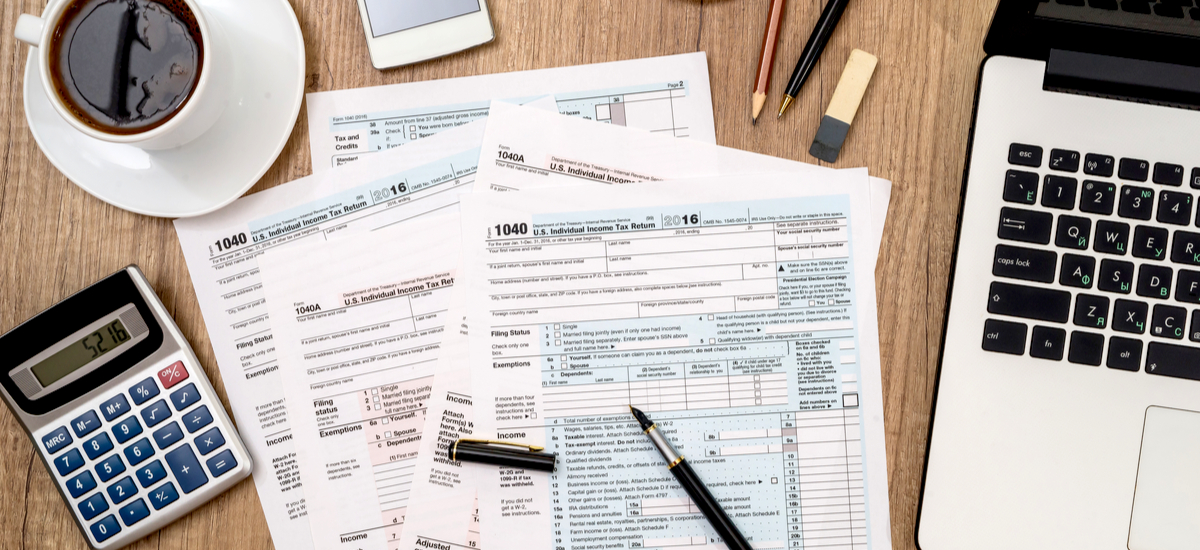Your guide to using Alipay as a Canadian business
This article talks about how businesses in Canada can use Alipay and Wise to boost their international transaction experience

Canada has a strong and dynamic economy, and can be a great place to do business as an entrepreneur or company owner. In fact, an astonishing 97.9% of the businesses registered on the Statistics Canada —Business Register are small businesses.¹
If you’re considering joining them, and launching your own company, you have a lot to think about. Not only do you need to come up with a great business idea and plan, you’ll have to get your finances in order, register with the federal and provincial governments, market your company and connect with your customer base. It can feel like there’s an overwhelming number of tasks to consider — but over a million Canadians currently own their own small businesses, proving it’s not only possible but an attractive way to make a living.
This guide will help you work through the steps you’ll need to take to get your business up and running, from coming up with an idea that’ll sell, to planning for the future once you’re off the ground.

Setting up your own business is a big leap, and can feel a little daunting at first. However, by breaking down the tasks you need to complete into manageable steps, you can remove the stress, and get started building your business. Here are the key steps to starting a business in Canada you’ll need to think about.
No matter where you’re planning on opening a business, you need a great idea to get you started. You might consider opening a franchise business, or developing one of your own ideas. Maybe you already have a strong view about the type of company that would flourish in your location, or you’re passionate about a particular product or service and want to share it with a bigger audience.
Don’t forget to think about business trends in your local area, and test your ideas wherever possible. If you’re making and selling products, for example, you could try to sell online via eBay, or at local markets. If you want to offer a service you can also test this out on friends and family to hone your ideas, get customer’s views and gauge interest. Whether you’re planning on offering life coaching, or selling your homemade specialty baked goods, you’ll be able to find ways to gather feedback, and check if your ideas will work on a larger scale.

Once you’re sure about the type of business you want to run, you need a plan. Luckily there are lots of great resources out there to help you write a business plan. Check out the advice, templates and tools over on the Canada Business website as a great starting point. You’ll find links to resources, including details about what information various different banks will need to see in a business plan if you choose to look for business financing.
When you’re at the planning stage it’s also a great time to check out the support available from Innovation Canada. There’s a helpful tool on their website which allows you to input some details about the type of business you want to run, your location and needs, to generate lists of federal and regional resources which may help you, from expert advice to funding help. You’ll find the links in the sources list.
Getting your business name right will help customers to understand what you do, and give them an immediate impression of the type of business you run. You'll need to choose something which is simple but unique, which tells customers what you can do for them. Make sure you choose something customers can spell and pronounce easily, which is distinctive and not too similar to businesses which are already out there.
When you have a shortlist of names you’ll need to do an online name search to make sure that the name you want isn’t already in use — it's against the law to use a name which is already being used by an existing business, or one which has been trademarked.
Depending on your location and the business type you’re setting up, you may now need to register your company name with the provincial authorities. If you’re planning on creating a sole proprietorship which will use your own legal name without additions, you may not need to register it. However, sole proprietorships with a different name, and any other business type usually need to be registered.
The exception to this rule is that sole proprietorships and partnerships dont need to be registered in Labrador and Newfoundland — so be sure to check the details for your own location thoroughly.

If you’re not sure which type of business will best meet your needs, you can get lots of information on the Canada Business website, or seek professional advice. Here’s a rundown of the main types of business structure available to you.
Sole proprietorship — this is the easiest and cheapest type of business to register and run. You’ll be completely responsible for your own business, and can be held personally liable for business debts. You also keep all the profits yourself.
Partnership — you can start a partnership with one or more partners, as a general partnership, limited partnership or limited liability partnership. In this case you’ll pool resources with others to get your business off the ground, and share the profits. If you’re not a Canadian resident, forming a partnership with someone who is, can be a smart way to get your business running.
Corporation — by creating a corporation you’re setting up a separate legal entity, which means you’re not personally liable for the debts and obligations of the business. Incorporation can be done at regional or federal level, and costs more and requires more thorough reporting than other types of business. Corporations may need to have a certain number of Canadian residents listed as directors. If you’re non-resident, you’ll need to check the rules wherever you’re planning on basing the business
Co-operative — a Co-operative is owned and run by its members, and can either be for profit or a not for profit association.
Depending on what type of business you’re planning, you might need to get permits or licenses before you can start to trade. You’ll be able to find everything you need to know by using the tools and resources on the Canadian government website. There’s a step by step checker called BizPaL you can use to check your business type and location, and see what licenses or permits may be necessary, as well as information on how to apply and pay.
You’ll need to register your business with the local and federal government, depending on where in Canada you’re based and the type of business you do. In most cases you’ll need to get a Business Number (BN) from the federal government, and if you’re in Quebec you’ll also need a Quebec Enterprise Number (NEQ).
Your business number is a 9 digit number which is used for identifying your business when dealing with the government. If your business will collect GST or HST you’ll need this and also a Canada Revenue Agency (CRA) program account. Find all you need to know about the process, on the Canadian government website.

As well as registering with the federal government, most provincial and territorial governments require businesses to register with them too. In some provinces you’ll need to collect provincial sales tax after registering.
The process varies depending on your location, so you’ll need to get the details from your regional government. You’ll find links to each regional business registry office, on the Canada Business website.
It pays to keep great business records right from the moment you start operating. Having good records makes it quicker and easier to pay your taxes and manage your accounting, so you’ll save time in the long run by setting up a strong system to start with.
You’ll also need to get yourself a business account to keep your company finances separate from your personal finances. It’s worth doing some research into the right account for your business, looking at both the products available from traditional banks, and also modern alternatives like the Wise borderless account for business. With a borderless account your can send and receive international payments using the mid market exchange rate, with no markup or hidden fees to worry about. This is perfect if you expect to deal with customers or suppliers based overseas.

Knowing your target customer is the first step in marketing your business. Think carefully about who you’re selling to, so you can work out the best ways to connect with this segment.
For example, if your target customer is a parent of small kids you may choose to give out flyers near the local park or at baby groups, or use posters in family friendly cafes. If your business is selling classic comics, your core customer will likely be different and you’ll maybe choose to connect via fan websites, social media and targeted advertising in specialist magazines.
Depending on the type of business you’re setting up you may need some financial support immediately — or you might choose to be initially self-financing, before seeking additional investment to grow at a later stage.
It’s worth reviewing the information about grants and financial support which is available on the Canadian government website. Depending on your location and circumstances you might find that there’s support out there for your business. Otherwise you could seek business funding from a traditional bank, through crowdfunding or by finding angel investors. There are advantages and disadvantages to all of these methods of funding, so it is helpful to get professional advice if you’re unsure which might work best for your particular business.
If your business grows, you need to be ready to take on, train and register employees. As soon as you start thinking about hiring someone to help with your business, you’ll need to register with the provincial Workers Compensation Board (WCB) in your area, and learn about worker's compensation insurance.
The premiums you need to pay for workers compensation insurance will be decided based on the type of business you run. By registering with the WCB and paying your premiums, you’re protecting your business and your employees in the unfortunate event that someone is injured at work.
A final — but important — consideration is insurance. The exact cover you’ll need will depend both on the type of business you run, and your attitude to risk. It’s well worth thinking about the options, and considering what may happen in a range of scenarios, to help you decide the level of cover you need.
Getting insurance for your business property, goods and vehicles is essential, but you may also consider general liability, product liability or professional liability cover depending on your business type. You might also want some type of business interruption insurance which would help you cover your costs if you’re unable to work because of natural disasters, fire or flood.
Launching your own business is both exciting and a little overwhelming. There’s a lot to do, and so many things to consider to make sure you’re fully legally compliant as well as profitable. By breaking down the steps you need to take into manageable chunks, you’ll find starting up a business in Canada easier. There’s lots of help out there too, both in free advice and guidance from various federal and regional government agencies, and in a range of paid support from professionals who specialise in helping new businesses to thrive. Don’t be afraid to ask for the help you need, to get your business up and running successfully.
Sources:
All sources checked 17 July 2019
*Please see terms of use and product availability for your region or visit Wise fees and pricing for the most up to date pricing and fee information.
This publication is provided for general information purposes and does not constitute legal, tax or other professional advice from Wise Payments Limited or its subsidiaries and its affiliates, and it is not intended as a substitute for obtaining advice from a financial advisor or any other professional.
We make no representations, warranties or guarantees, whether expressed or implied, that the content in the publication is accurate, complete or up to date.

This article talks about how businesses in Canada can use Alipay and Wise to boost their international transaction experience

We’ll go over the features and pricing of Ceridian Dayforce in this article while checking out Wise as a cost-effective alternative for global money transfers

Is Nethris Payroll the right one for your global business? Read on to discover the features, pricing and alternatives

This guide helps you pick between Alibaba and Amazon for selling products, while introducing the Wise Business account for international business transactions

This guide shall cover how you can ship products from Canada to the US and save on currency conversions with Wise

This guide shall cover how you can ship products from Canada to China